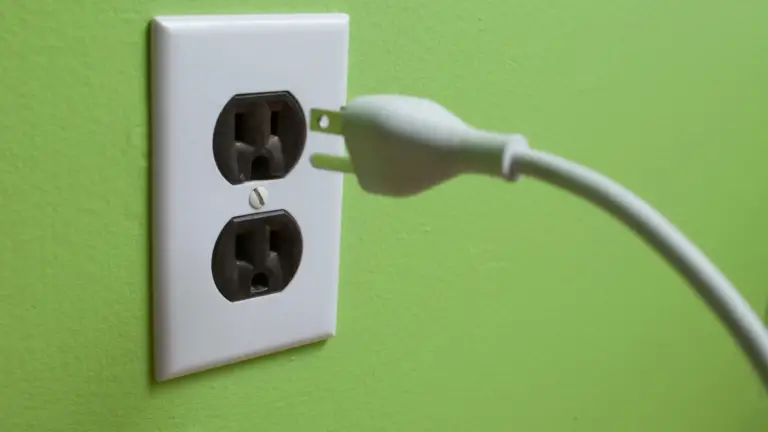Owning a dishwasher is a modern luxury that helps to save time while using water more efficiently, especially with newer models of dishwashers. If you notice that your dishwasher plug is getting hot, you may be wondering if it is safe to run your dishwasher and how to fix the temperature of the plug itself.
A dishwasher plug may feel hot due to a faulty appliance, using an incorrect fuse, or even a poor wiring connection.
Contents
- 1 Why does my dishwasher plug get hot?
- 2 Is it normal for a plug to get hot?
- 3 What happens if a plug gets hot?
- 4 How can I calculate the correct fuse rating for my dishwasher?
- 5 How do I know if I am using the wrong wire or cable?
- 6 How do I know if I am using a faulty socket or outlet?
- 7 Is it safe if my dishwasher plug is hot?
- 8 What are the dangers of a hot dishwasher plug or cord?
- 9 Can I plug my dishwasher into a regular outlet?
- 10 Do I need a GFCI breaker when plugging in my dishwasher?
- 11 How can I safely turn off my dishwasher if the plug is too hot?
Why does my dishwasher plug get hot?
Determining why your dishwasher’s plug is getting hot will require observance of the appliance as well as the fuse and connections used to power the dishwasher. Some of the most common causes of a dishwasher plug overheating and feeling hot to the touch include:
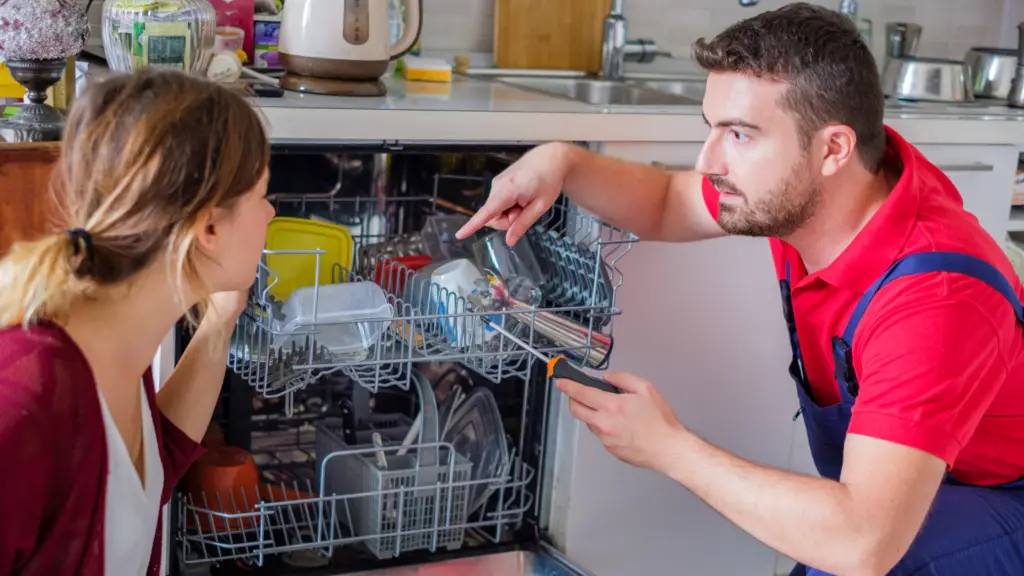
- A faulty appliance: If your dishwasher is old, outdated, or has not been properly maintained, it may require further inspection to determine the root cause of the overheating of its plug.
- Incorrect fuse: If you have your dishwasher plugged into an outlet with an incorrect fuse, you may notice that your dishwasher begins to overheat or that the cord itself becomes hot, whether it is in use or not.
- Faulty wiring: A loose wire connection or poor wiring altogether can also be a contributing factor to a wire that feels hot to the touch. Not only can poor wiring cause your dishwasher’s plug and cable to feel warm to the touch, but it can also put your home at an increased risk of an appliance fire.
- Incorrect cable: Connecting your dishwasher to an outlet properly is essential to prevent overheating and the risk of sparks or even a fire. A cord that is not well-suited to your dishwasher can quickly result in overheating and becoming too hot to the touch.
- Corrosion: Over time, your dishwasher’s cords and plugs may become corroded or rotted. Regular inspections are advisable to ensure preventative maintenance and the replacement of cords as necessary to minimize the risk of a fire or another electrical issue with your dishwasher and its plug.
- Outdated or faulty socket: If the issues listed above are not the culprit and cause of your dishwasher’s plug overheating, you may have your dishwasher plugged into a faulty and/or outdated wall socket.
Is it normal for a plug to get hot?
While it is typical for an appliance plug or a plug powering a large device to become warm to the touch while the item is in use for an extended period of time, it is abnormal for any cord to feel hot to the touch.
What happens if a plug gets hot?
When a plug gets hot, it is typically doing so due to not having the ability to redirect the electrical current to the appropriate location. When heat is generated from an electric current that is passing through a body that is resistant, this is typically referred to as “ohmic heating”.
As increased power is converted to waste heat, you will begin to notice that your dishwasher’s cord’s temperature is also rising.
How can I calculate the correct fuse rating for my dishwasher?
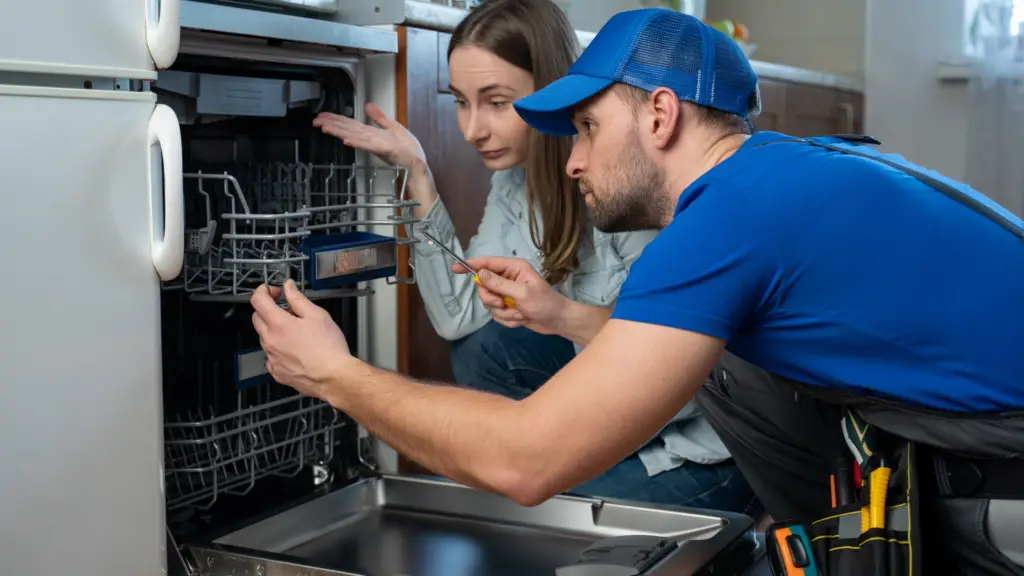
If you believe you are using an incorrect fuse where your dishwasher is plugged in at your home, you may need to calculate the correct fuse rating to ensure the plug and cord do not quickly become overheated. To calculate the proper fuse rating for your dishwasher, complete the following steps:
- Divide the total number of watts in your dishwasher appliance by 230 volts.
- Choose a fuse amp that includes a rating above the calculated result.
Keep in mind that fuses come in 1, 3, 5, and 13 amps. One example of how fuses work with appliances is a traditional lamp that uses a 60-watt bulb. The lamp will work best with a 1-amp fuse, rather than a fuse with higher amps after completing the standard calculation for finding the proper fuse.
How do I know if I am using the wrong wire or cable?
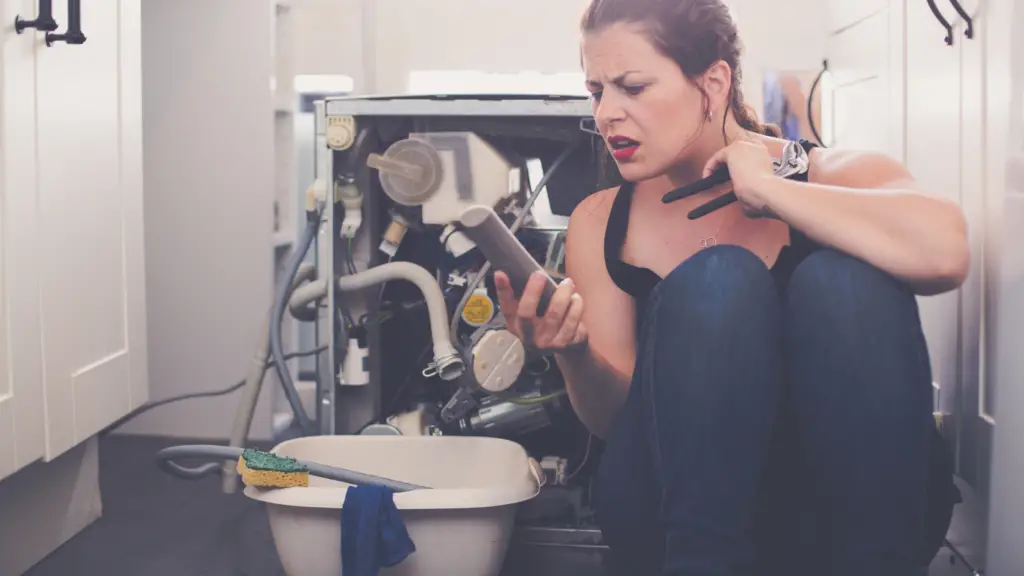
Determining if you are using the wrong cable or wire to plug in your dishwasher appliance should only be done once you have turned off any power and connection using a circuit breaker. Inspect the cord for potential fraying, breakages, and exposure areas to confirm whether or not the cord is in proper condition.
To determine if you are using the wrong type of cable, you may need to contact an electrician or an appliance repair specialist.
How do I know if I am using a faulty socket or outlet?
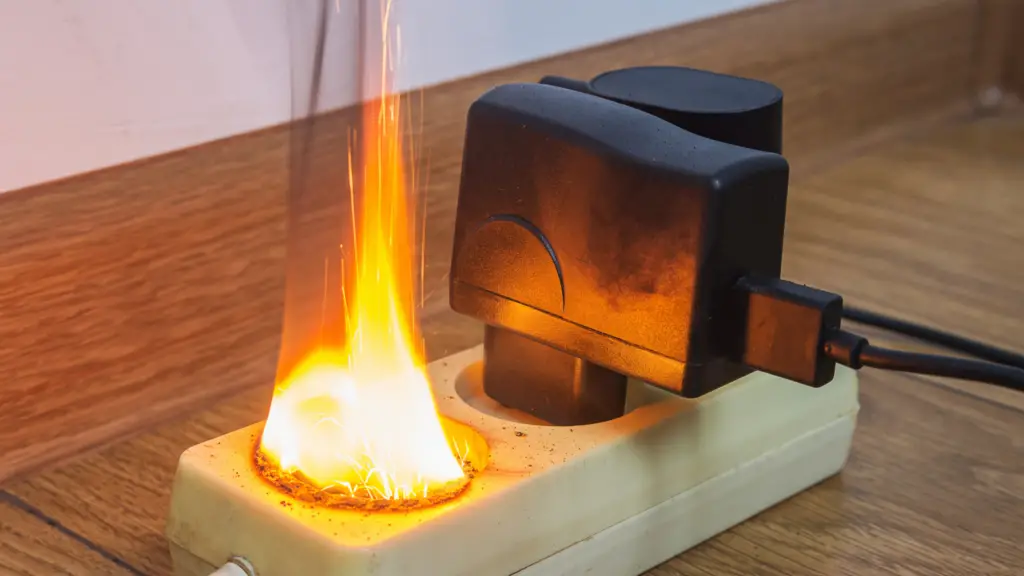
In some cases, you may be using a faulty outlet or socket to attempt to plug in your dishwasher. In these cases, the culprit is not always obvious until the problem has become serious and/or disruptive. If your socket or outlet is faulty or has bad wiring, you may notice issues with anything you plug into the socket itself.
Additionally, you may also begin to notice plumes of smoke or smoke production the more you use any items that are plugged in, including appliances such as your dishwasher.
Is it safe if my dishwasher plug is hot?
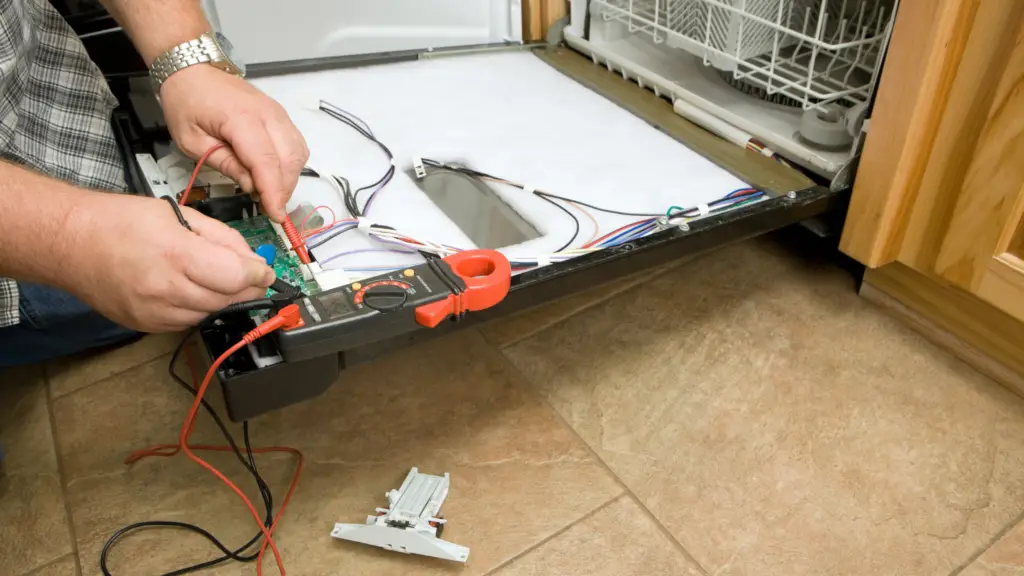
If your dishwasher’s plug is abnormally hot to the touch and not just warm from use, it can lead to potential danger and an increased risk of an appliance fire. Whether the culprit is faulty wiring, a corroded plug, or even an incorrect fuse, you will need to unplug your dishwasher to prevent potential risk.
What are the dangers of a hot dishwasher plug or cord?
Leaving your dishwasher on with a hot plug or cord can lead to an array of problems, from potential fire risks to hazards that include electrical shocks. If your dishwasher is plugged in near flammable materials, your belongings are more at risk of a potential fire, especially if the dishwasher is located near materials such as paper, wallpaper, curtains, or other flammable items.
Can I plug my dishwasher into a regular outlet?

Yes, in most instances, it is possible to plug in a dishwasher using a traditional wall outlet and socket.
Most dishwashers run on 120-volt power. If you are unsure of whether or not your home’s outlets are suitable for a dishwasher, you can check with your county’s local electrical code for more information regarding potential restrictions and/or limitations that may be in effect.
Do I need a GFCI breaker when plugging in my dishwasher?
Yes, if you are living in the US and own a dishwasher in your home, the circuit used to power the appliance must also have a GFCI breaker included in the circuit breaker panel itself to abide by safety standards.
How can I safely turn off my dishwasher if the plug is too hot?
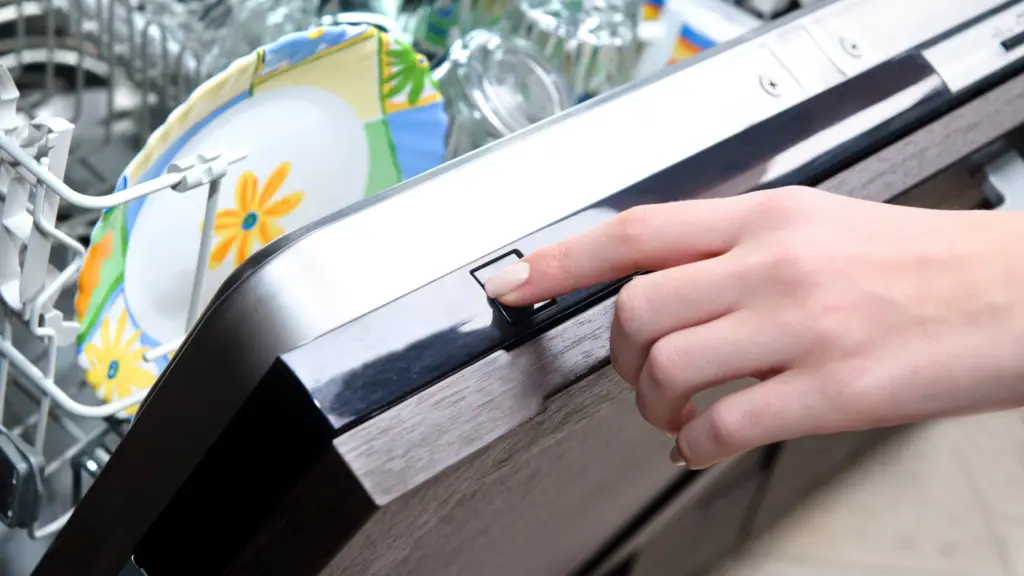
If your dishwasher’s plug is too hot to touch or has increasingly become hot over time, the best course of action involves turning off the main circuit breaker relevant to your appliance’s location. Turning off the circuit breaker before attempting to remove the plug from the wall is highly recommended for the following reasons:
- Cooldown period: Provide a cooldown period before you remove the dishwasher’s plug from your wall when you turn off the circuit breaker, rather than reaching for the cord yourself.
- Eliminate electrical shock risk: Rather than attempting to pull the dishwasher plug out yourself while it is still running or while there is active electricity in the cord, turning off the circuit breaker will eliminate all risks associated with a potential electrical shock.
- Reduce fire risk: Avoid a potential fire by turning off the circuit breaker that is directly linked to the location of your current dishwasher. Attempting to unplug a hot or overheating plug from a potentially damaged or live outlet can result in electrical shocks as well as an increase in a fire risk.

